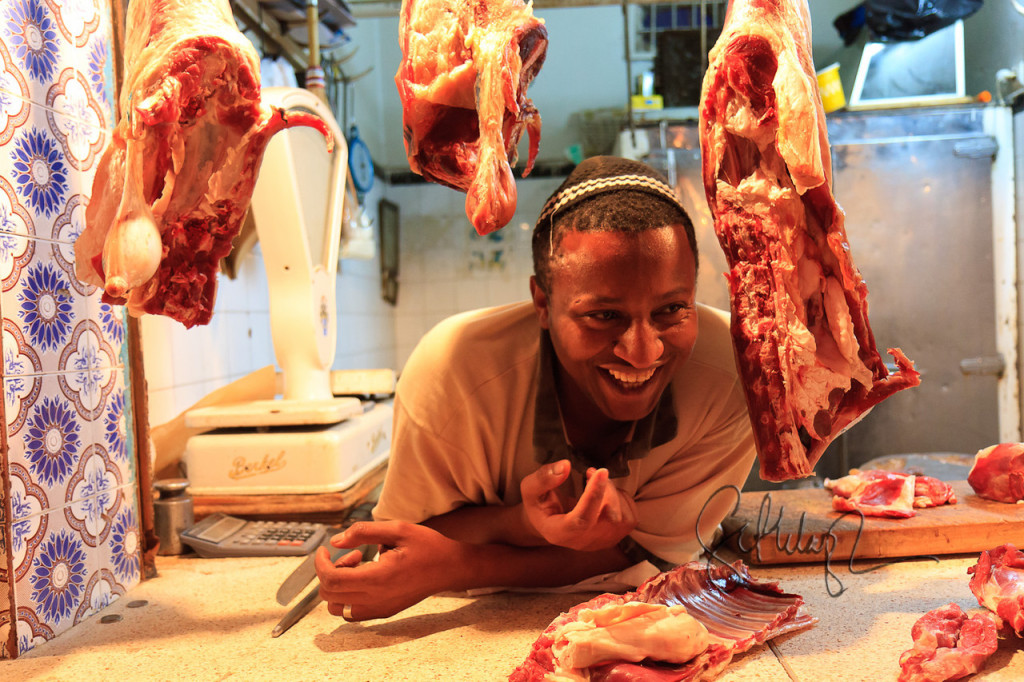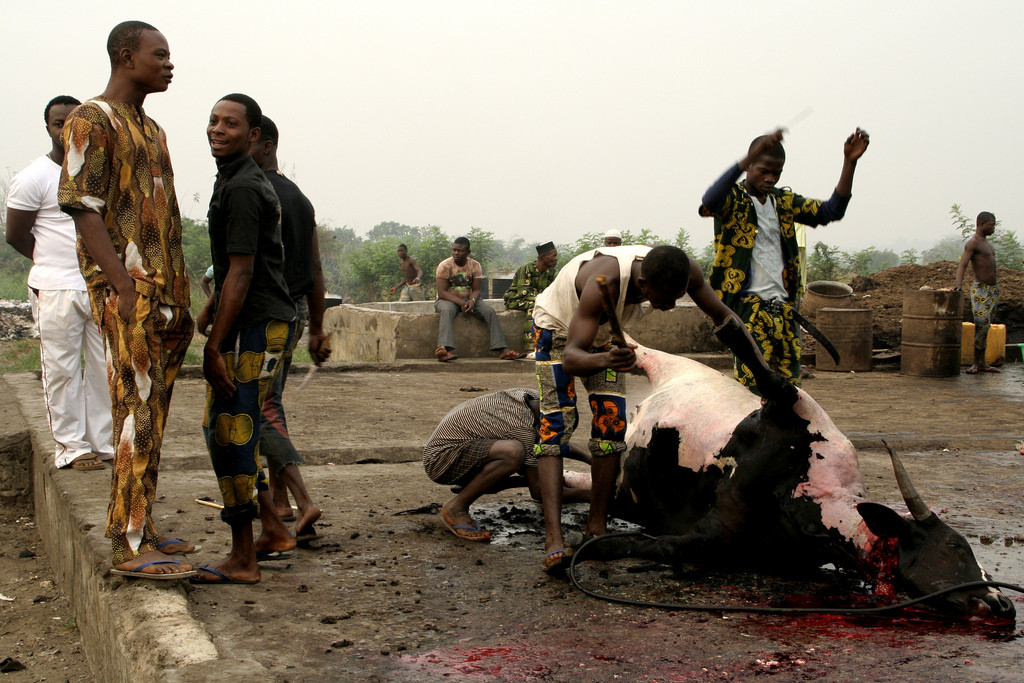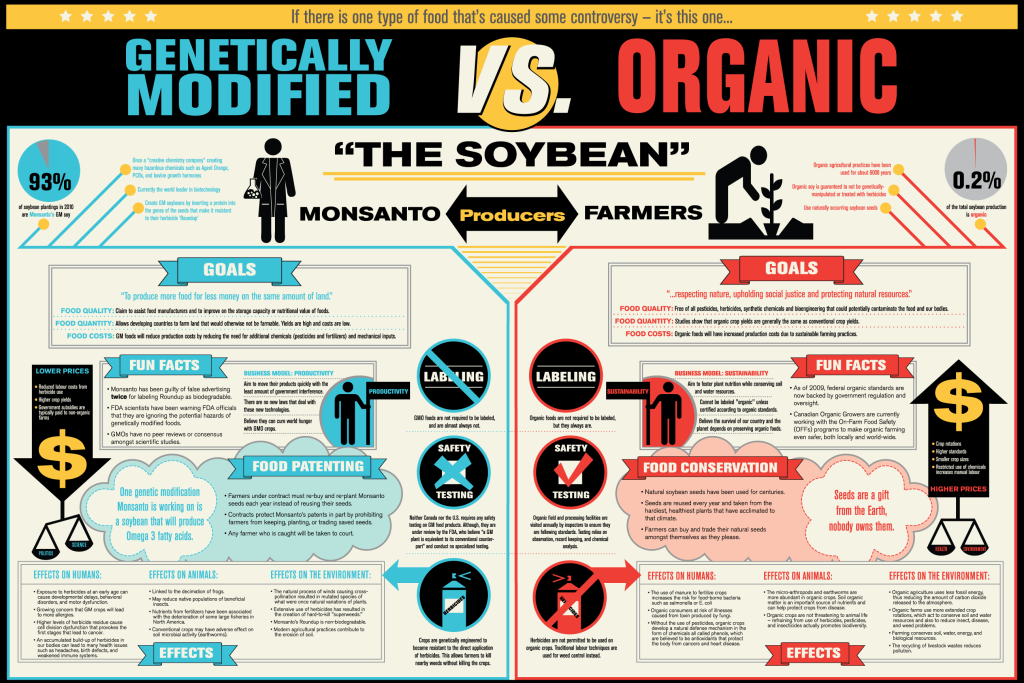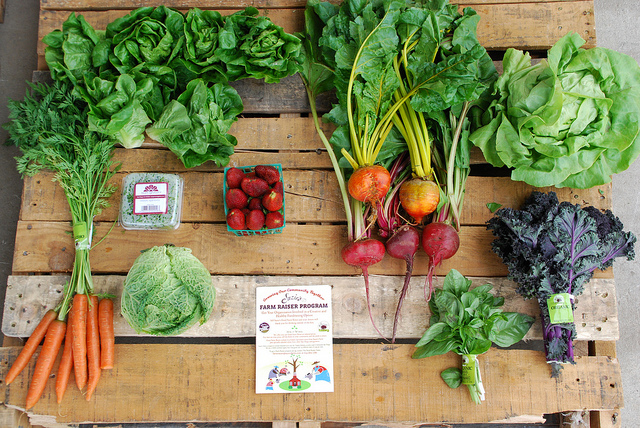As told by an African: Food, GMOs & the Developing World
Recently, I was reading a news article with the headline “Why You Shouldn’t Take Your Milk’s 3-Week Shelf Life For Granted”, and it made me think about the lifespan of food in America, and the debates surrounding organic, Genetically Modified Organisms (GMOs) and food labeling. In the article, it talks about differences in the shelf life of milk in the US versus Brazil, Australia, Greece and Uganda. Not surprisingly, the US has the highest average shelf-life.
I remember arriving in this country from Africa more than 11 years ago, and being perplexed on how long tomatoes, peppers, broccoli and even meat lasted in the refrigerator. Growing up in a developing country, it was not common to have these items last longer than two or three days. You really have to eat them right away, or else it’s a waste. It was a luxury to buy packaged meat or frozen meats–your chances were zero, for all the reasons listed in the inciting article.

At the market, chickens, goats and cows are killed on the spot and sold right away–no need for a “cold chain.” The lack of cooling and processing technology brought a more personal side to what ended up on our dinner plate. In some cases, I knew these farmers, I watched them with their herds, I know what the animals were fed and the conditions they were in before slaughter. I’m not sure how the FDA determines ‘organic’, but the process I was born into could not have been more organic, and definitely tops any Harvard-trained standard. This process made impossible mass production, was free from biotechnologies and allowed for a more sustainable consumption.
Electricity, trucks, tanks, refrigerators and other linkages point to a big difference in the lifespan of food in most developing countries, and why they tend to have the shortest shelf lives. These are the vehicles for mass production of food. More and more, society loses track of the technologies used in food production. This lack of consciousness results both from great effort on the part of big farmers to suppress necessary information, and the inept and corrupt government that refuses to enforce accountability.
There is a massive debate going on regarding the effect of biotechnology in food production, particularly GMOs. Food processing companies and big agriculture say they’re safe–and have the FDA on their side–while environmentalists and small farmers argue GMOs are bad for everyone. Critics argue that labeling will give consumers a better understanding into how their food is processed, and what is included in the production. The other side argues that requiring labels will increase production costs and in turn buying costs for consumers.
Before going on their August recess, the House of Representatives passed legislation that blocks states from enforcing their own rules, such as the labeling of GMO products. The likelihood of passing in the Senate is slim, even before factoring in the almighty veto of the President. Prior to this, several states passed legislation requiring producers to label food made from GMOs and other biotechnologies–most recently, Vermont, Connecticut and Maine. California tried and failed in a 2012 voters proposition. This website provides a detailed list of state by state actions on the issue of GMOs.
A couple of years ago, my search for authentic/non-processed meat, and frustration at the soaring cost of goat meat at the local Asian market, led me to search for an alternative. I asked within my Nigerian and African community and was introduced to a farmer on the outskirts of Stockton, Cal. On my first visit, I was comforted to see people from other parts of the world–Indians, Filipinos, people from other Asian countries who patronize this farm.
This particular farmer raises goats, cows, sheep, chicken and other poultry, all roaming free. You point to which among the herds you want, and he separates it from the pack. Depending on your religious or non-religious preference, you can choose to have the animal killed with a gunshot to the head, or to have its throat slit with a knife–all in an instant and with no pain. You, the consumer, are responsible for slaughtering into the pieces and shapes of your liking; water and other tools are provided by the farm for a safe handling. This is why I would never go vegetarian–because more than 80% of my meat is non-processed and locally grown.
I have been fortunate to live in two very different parts of the world. There are tremendous benefits in having and not having food technologies, but nothing beats knowledge and information. The experience of my childhood may not be probable in most parts of the US, but small scale farmers and cattle ranchers at your local farmers market–that idea is not a fairy tale. Another option is “farm-to-table“, a mechanism that attempts to reduce the cold chain in vegetables, fruits and other produce, and promotes an emphasis on local supply. After all, biotech is used in part to maximize production on a large scale, which means small scale production puts the buying power back in the hands of the consumer. It reduces the “cold chain”, forces big farmers to be more transparent, and to accommodate consumers’ thirst for a chemical-free meal. It promotes community-based food consumption and brings back the connection we’ve lost with our food. It’s not about whether GMOs are good or bad for you (in my opinion), but rather a lack of information. As advanced as we are, people don’t have the critical information as to where their food is coming from or what it’s made of, and are unaware of the forces trying to restrict this information.



